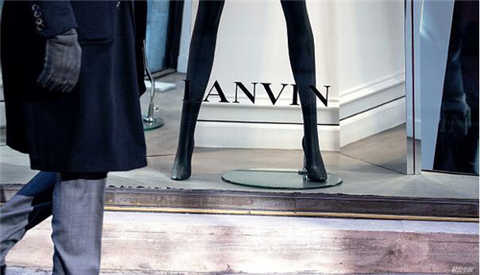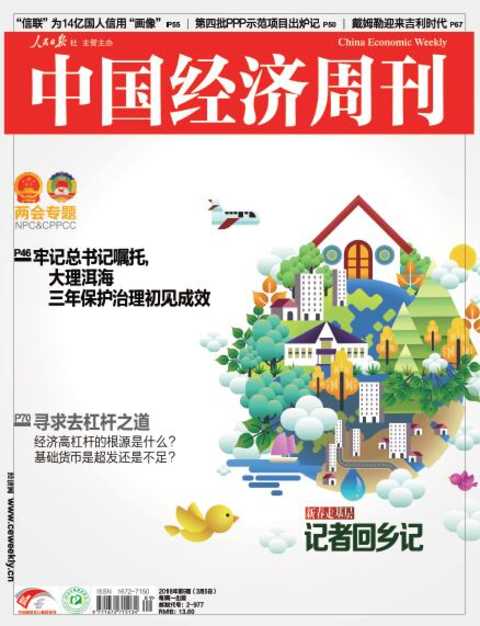Many Chinese companies with capital strength have launched a merger and acquisition model, targeting foreign high-end brands. "China Economic Weekly" reporter Hou Wei Beijing report Editor: Zhou Qi (This article was published in China Economic Weekly, No. 9 of 2018) Chinese buyers have acquired two cities in the luxury sector. On February 9, Shandong Ruyi 002193, shares investment holdings announced that it acquired the controlling stake of Swiss luxury goods company Bally International AG (hereinafter referred to as "Bally") from European investment giant JAB Holding Co. (hereinafter referred to as "JAB"). On February 22, Fosun International and its subsidiaries (hereinafter referred to as “Fosunâ€) announced the acquisition of French haute couture fashion brand Jeanne Lanvin SAS (hereinafter referred to as “Lanvinâ€). Bally has a long history of more than 160 years. The famous explorers Tenzing Norgay and Sir Edmund Hilary first appeared on the highest point of Mount Everest, wearing Bally hiking boots; Lanvin was founded by Jeanne Lanvin in 1889, currently in addition to Hermes and Chanel One of the few French luxury brands that remain independent today, has the reputation of “the jewel in the crown†of the French fashion industry. In the case of many international luxury brand mergers and acquisitions, Chinese buyers have come from winning the wall to winning the championship. Is the spring of the Chinese luxury goods industry coming? Good business or good investment “Fosun can deeply understand the Lanvin brand, and Fosun also has outstanding performance in the European and global markets, including successful cooperation and transformation strategies with the Mediterranean Club, Tom Tailor and other brands. We believe that Fosun can be trusted by Lanvin. Long-term strategic partner," said Lanvin's current CEO, Nicolas Druz. Cheng Yun, deputy CFO of Fosun International and CEO of Fosun Fashion Group, believes that Fosun can empower Lanvin through global resource integration capabilities and professional strength, while maintaining the core competitiveness and historical value of the brand's French and Italian manufacturing. "From the perspective of investment, Lanvin is undoubtedly a good target, with a long history and good reputation. But as a veteran luxury, Lanvin continues to lose money. Not only is the high-level changes frequently, but the funds are insufficient and development is blocked. Fosun will still face after taking over. Difficult challenges.†Zhou Ting, Dean of the Institute of Wealth Quality, told the China Economic Weekly. According to the data, Lanvin's sales began to decline after peaking in 2012, and further fell 23% to 162 million euros in 2016. Lanvin's sales in 2017 have not yet been announced, and external analysts believe that its decline may reach 40.1% to 97 million euros, with a cumulative loss of 27 million euros. Another thorny issue is that in order to fill Lanvin's funding gap, its major shareholder, Taiwanese businessman Wang Xiaolan sold part of its brand business. Among them, in 2002, Lanvin's Japanese authorized business was sold to Itochu, and in 2007, the perfume business was sold to Interparfums. If you want to buy back these two businesses, you may need 100 million euros. In other words, Fosun will provide Lanvin with about 100 million euros. For Fosun, which is rich in money, capital is not the biggest problem. As one of the famous Chinese buyers who buy and buy in the world, Fosun has always had a soft spot for luxury goods. Guo Guangchang, chairman of Fosun, said that he had planned to buy Prada, Moncler and Versace, but he did not finish it. “With the gradual recovery of the global luxury fashion industry, Fosun International, which has taken advantage of business opportunities, has begun to increase its investment in luxury fashion. In addition to increasing its stake in Caruso and Tom Tailor, it also bought it for 256 million pounds in June last year. Gemfields, the world's largest emerald miner. Fosun lacks operational capabilities. What is even more difficult is that Lanvin's long-term erratic product positioning and brand image can't be solved overnight. Zhou Ting told China Economic Weekly. Wishful abacus Compared with the outside world, Fosun International has not had the experience of leading European luxury brands out of the predicament. Shandong Ruyi Group 000626, shares are full of confidence in themselves. Qiu Yafu, Chairman of Ruyi Group, said: "Bally is one of the most important luxury footwear and leather accessories brands in the world. It has a major complement to our professionalism in ready-to-wear. We will jointly promote Bally's new journey, the global trading world. Market allocation and resources will drive continued market share growth and further enhance brand influence across the globe." The acquisition of Bally is part of the strategy of expanding global luxury brands. Since 2010, Ruyi Holdings has carried out about 12 overseas brand acquisitions involving upstream raw materials, manufacturing companies and branded apparel. Among them, RENOWN, the largest clothing brand operator in Japan, Sandro, Maje and Claudie Perlot, the French luxury brands, and Aquascutum, the British brand. According to the data, Shandong Ruyi Group is currently a large-scale textile and garment group integrating the design, production and sales of worsted fabrics and garments. In 2016, Ruyi Group's sales revenue reached 50 billion yuan, and its profit reached 2.85 billion yuan, ranking first among the top 500 competitiveness of Chinese textile and garment enterprises. “The pace of acquisition from Ruyi Overseas can be seen from the determination of the company to transform from fabric and garment processing suppliers to the world's top apparel luxury brand groups. In recent years, the Chinese apparel industry is under tremendous pressure from overcapacity, market downturn and brand weakening. In the context of consumption upgrades, some powerful apparel companies, including Ruyi, implemented overseas mergers and acquisitions in an effort to expand new growth points and transformation paths,†Zhou Ting said in an interview with China Economic Weekly. Bally CEO Denep said that the completion of the deal is full of possibilities for Bally's future development. According to the data, China has become the largest market in Bally, with 52 stores, the most in the world. Denep has revealed that nearly half of the world's Bally products are bought by Chinese consumers every year. Who will be the next to be acquired? With the improvement of consumers' quality of life and changes in consumer attitudes, the global luxury goods market has gradually recovered since 2017. Among them, the increase in the consumption of personal luxury goods in China has injected a strong force into the recovery of the global luxury goods market. Bain’s “2017 China Luxury Market Research†report shows that in 2017, China’s luxury goods sales reached 142 billion yuan, a 20% increase from 2016, the largest increase since 2011, surpassing overseas markets. Bloomberg columnist David Fickling once wrote, "If you are a poorly performing brand and have a high profile in Asia, such as Prada or Salvatore Ferragamo, maybe it's time (these are from Chinese buyers). Prepare for the acquisition." According to McKinsey data, as of 2016, three-quarters of the global luxury consumption growth came from China. Buyers from China will undoubtedly pave the way for these brands to further penetrate the market. However, some foreign media believe that in terms of business fashion, the efficiency thinking of Chinese buyers may bring counterproductive results. "At present, many Chinese companies with capital strength have opened up the M&A model and aimed at foreign high-end brands. In 2018, for the global luxury giants, these quietly emerging Asian competitors cannot be ignored. There is brand history and unique design style. There are industrial chains and luxury brands with Chinese consumer markets, which may be acquired by Chinese companies. In the process of Chinese companies from the foundry of the global fashion industry to the stage stage of world fashion, more strength and The courageous and discerning companies merge to control international fashion brands,†said Zhou Ting, Dean of the Institute of Wealth Quality. China Economic Weekly, 2018, issue 9 cover (Editor: Li Xingwang HF015) Hooded Sweatshirt,Custom Hoodies,Hoodies For Men,Oversized Hoodie Changzhou Xinzhi Chain Information Technology Co.Ltd , https://www.czczxzlkj.com

September 19, 2023